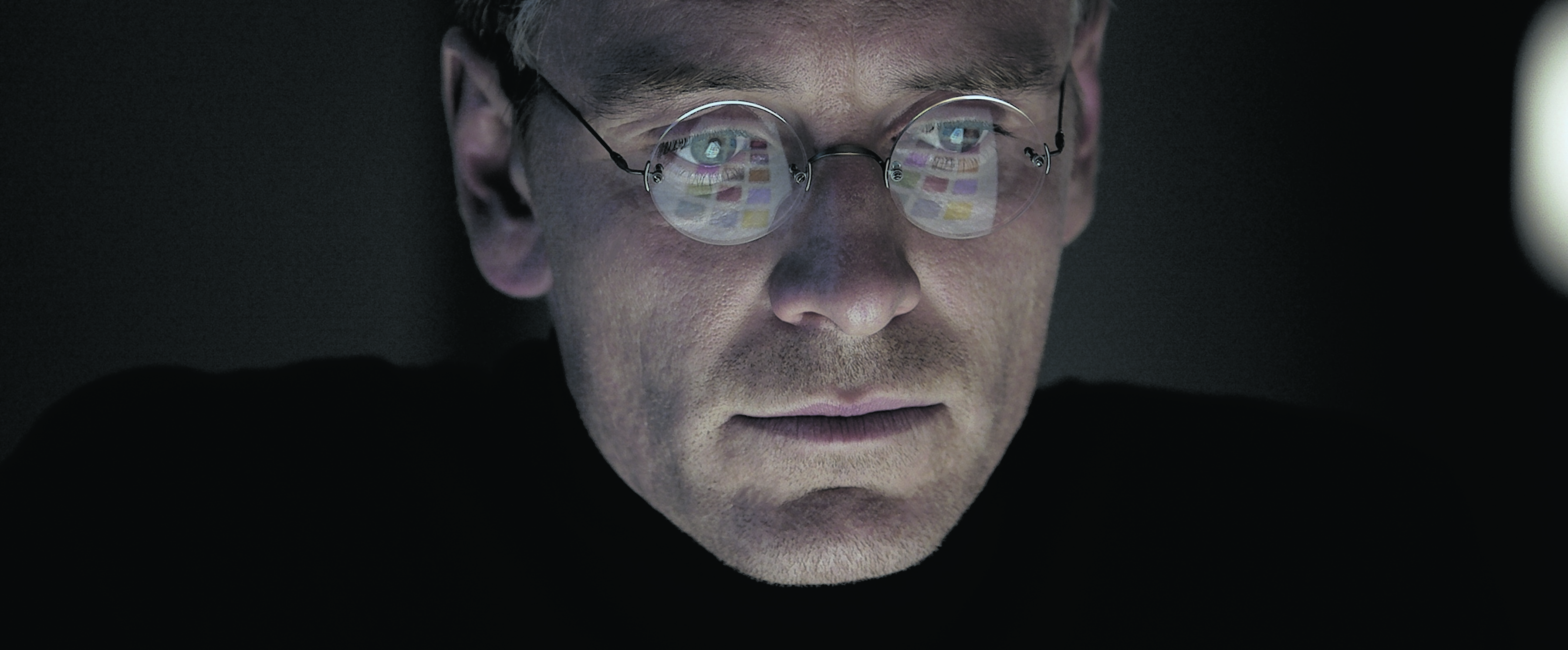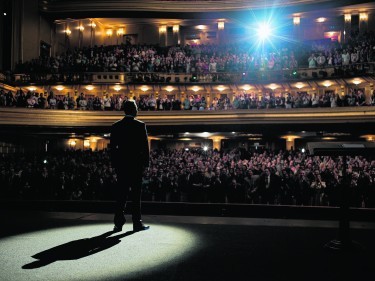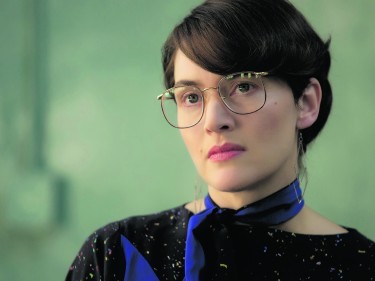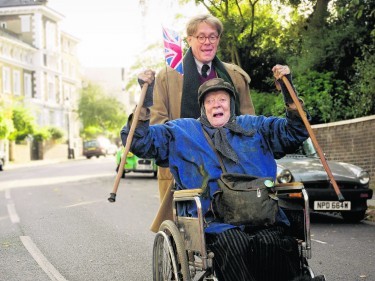STEVE JOBS (15)
5 stars
Danny Boyle’s bravura portrait of the revered Apple Inc co-founder is neither a traditional biopic nor a gushing hagiography.
Steve Jobs is an audacious character study in three acts that paints its subject as an egomaniac, a visionary and a neglectful father with the same meticulous brushstrokes.
Scriptwriter Aaron Sorkin, who collected an Academy Award for The Social Network, deserves to add another golden statuette to the mantelpiece for his exemplary work here.
He explores violently clashing facets of Jobs’s personality through the prism of three key product launches in 1984, 1988 and 1998 respectively.
Each chapter unfolds at a breathless pace, established by Sorkin’s rapid-fire dialogue, and cinematographer Alwin Kuchler cleverly conjures the mood by shooting on different film stocks: 16mm, 35mm and digital.
Michael Fassbender and Kate Winslet are mesmerising as the titular maven and his right-hand woman, who take markedly different approaches to people management.
In the first section, Steve (Fassbender) prepares to launch the first Macintosh flanked by marketing executive Joanna Hoffman (Winslet), one of the few people who tolerates his outbursts.
When the computer’s voice function glitches, Steve verbally abuses development team leader Andy Hertzfeld (Michael Stuhlbarg).
“We blow this and IBM will own the next 50 years like a Batman villain,” seethes Jobs.
Apple CEO John Sculley (Jeff Daniels) watches from the wings, bearing witness to the birth of a monster.
In the second chapter, set four years later, Steve continues to clash with his first girlfriend, Chrisann Brennan (Katherine Waterston), who claims that he is the father of her daughter.
“Things don’t become so because you say so,” she snaps, as Jobs prepares to launch The Cube, which he knows will be “the biggest single failure in the history of personal computing”.
Bitter defeat turns into sweet personal triumph in the final act as Steve returns to the Apple fold, ousts Sculley from his perch and prepares to dazzle the world with the iMac.
Rivalries simmer and co-founder Steve Wozniak (Seth Rogen) reminds Steve that being in charge doesn’t come at the expense of good manners.
“It’s not binary – you can be decent and gifted at the same time,” laments Wozniak.
Steve Jobs is another artistic triumph for Boyle, who stormed the Academy Awards in 2008 with Slumdog Millionaire.
His camera glides along corridors as the protagonist barks orders, demanding nothing less than perfection.
Excellence behind the camera would mean nothing without pyrotechnics on screen and Fassbender lights the fuse on his own Oscar chances with a scintillating portrayal of Jobs, who likens himself to a conductor.
“Musicians play their instruments. I play the orchestra,” he coolly tells his inner circle.
Glimpsed through Boyle’s unflinching and sometimes unflattering lens, Jobs played his orchestra until their fingers bled while he barely broke sweat.
THE LADY IN THE VAN (12A)
3 stars
Teasingly billed as “a mostly true story”, The Lady in the Van is an entertaining screen adaptation of Alan Bennett’s award-winning 1999 play, based on his experiences with a sharp-tongued vagrant called Miss Shepherd, who camped outside his driveway for more than 15 years.
The playwright has lovingly adapted his stage work, employing the same cute theatrical device of the real Alan and an internal self, who endlessly pontificate on the tramp’s shady past as they mooch about a north London home.
“Writing is talking to oneself and I’ve been doing it all of my life,” quips the real Alan to neatly explain the duelling onscreen narrators, both played with warmth and wit by Alex Jennings.
Dame Maggie Smith reprises her eye-catching stage role as the eponymous and fragrant tramp, unleashing an array of withering putdowns that would surely have her imperious dowager in Downton Abbey clucking with approval.
It’s a tour-de-force performance from the national treasure, tinged with pathos and regret, which reminds us that Smith is a gifted comedian as well as a twinkly-eyed sniper with a sardonic one-liner.
Alan (Jennings) moves into a house in Camden and is befriended by well-to-do neighbours including opera fans Rufus (Roger Allam) and Pauline (Deborah Findlay), who live opposite, and statuesque Ursula Vaughan Williams (Frances de la Tour).
Soon after, a cantankerous woman called Miss Shepherd (Smith) settles in their street in her ramshackle vehicle and bullies Alan into pushing her transport, when it refuses to start during a downpour.
“You wouldn’t see Harold Pinter pushing vans down the street,” Alan berates himself.
When council bureaucracy threatens the old woman’s future, the playwright foolishly agrees to let her take up temporary residence on his driveway for a few weeks.
Months turn into years and the playwright despairs as he becomes
Miss Shepherd’s guardian and suffers regular visits from interfering social services worker Miss Briscoe (Cecilia Noble).
When a police officer called Underwood (Jim Broadbent) begins to harass the old woman late at night, Alan speculates about her former life.
Meanwhile, Miss Shepherd seeks forgiveness for unspoken sins in the confessional of the local priest (Dermot Crowley).
“Absolution is not like a bus pass,” the holy man tenderly proclaims. “It does not run out.”
The Lady in the Van is an amusing and heartwarming tonic for these cold winter months.
Director Nicholas Hytner, who helmed the Olivier Award-nominated stage production, reunites with his leading lady with obvious relish.
He also includes cameos for most of the cast of The History Boys, his last collaboration with Bennett, including James Corden as a market trader, whose cheeky banter fails to curry favour with Miss Shepherd.
Supporting characters are sketched lightly in comparison, but all observe Smith’s virtuoso performance with admiration.



